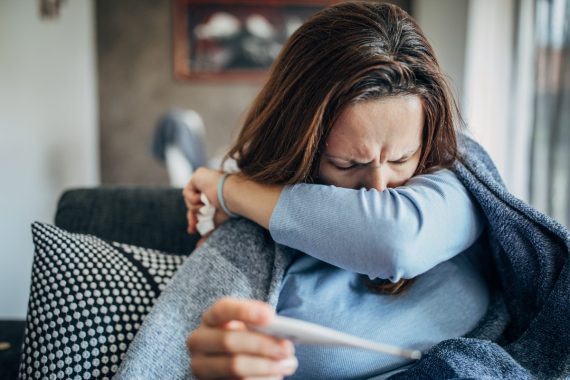A summary of guidance and updates from Public Health England
This information is sourced from PHE , NHS Test and Trace and NHS UK:
PLEASE NOTE: THIS IS NO LONGER RELEVANT AND IS NOT BEING UPDATED BUT HAS BEEN LEFT ON THE SITE FOR REFERENCE PURPOSES ONLY
Patients who have symptoms of Covid-19 or a positive test result
- If symptoms meet the PHE case definition patients need to stay at home and book a PCR test
- If they test positive for Covid-19 or are waiting for test results or have not been tested: they should self-isolate for 10 days
- The isolation period starts from the day their symptoms started and continues for a further 10 days
- If asymptomatic and a positive test result was received the isolation period starts from the day their result was received and for a further 10 days
- A positive Lateral Flow Device (LFD) test result also means they must complete 10 days isolation, unless this is followed by a negative PCR test within 2 days of the positive LFD
People who have ongoing symptoms beyond 10 days
Previously PHE advised that patients who had ANY of these ongoing symptoms
- temperature
- rhinorrhoea or sneezing
- nausea or vomiting
- diarrhoea
- loss of appetite
should self-isolate until they have resolved. For vomiting and diarrhoea specifically, PHE advised patients to isolate for 48 hours after symptoms resolved
Cough or anosmia that persisted for for several weeks did not mean patients needed to continue to self-isolate after 10 days
PHE now advise if patients still have a high temperature after 10 days or are otherwise unwell, they should stay at home and ask their GP for advice. We are awaiting PHE advice on how these patients should be managed by GPs
Patients who have a negative PCR test (and are not a contact; see below):
- Do not need to self-isolate unless they had a positive LFD test more than 2 days before the PCR test
- Are being advised to stay home whilst they feel unwell (and to wait 48 hours before going out if they have had diarrhoea or vomiting or a fever)
This information relates to contacts:
- People who have been in contact with a person who has coronavirus need to stay at home for 10 days
- Contact is defined as any time from 2 days before the person developed symptoms/tested positive (or up to 10 days after)
- Household contacts need to stay at home for 10 days (the incubation period)
- If a household contact becomes unwell during their isolation period they need to stay at home for 10 days from the day that they became unwell
This information relates to patients who have been treated in hospital:
- Patients symptomatic of Covid-19 should self-isolate for at least 14 days from their first positive PCR test whether in hospital or if discharged home
- Individuals with asymptomatic positive Covid-19 infection (detected through routine PCR testing in hospital) should be advised on discharge to self-isolate for 10 days from their PCR test
- If still febrile on discharge, patients should continue to self-isolate until their fever has resolved for 48 hours consecutively without medication (unless another reason for persistent fever exists)
People who have previously tested positive for Covid 19 or who have been vaccinated:
- Vaccinated people or people who have had previous Covid-19 infection should follow the same isolation guidance
- People who have tested positive for Covid-19 have probably developed some immunity but this cannot be guaranteed
- Covid-19 vaccines have been shown to reduce the likelihood of severe illness for those who have received them
- We do not yet know for certain by how much vaccines reduce the likelihood of a vaccinated person infecting others
PHE have produced a clear Stay at home illustration which you can share with patients
Written by Dr Poppy Freeman













